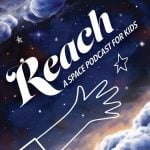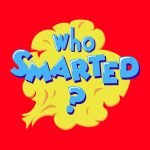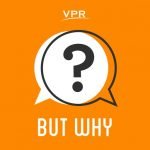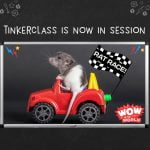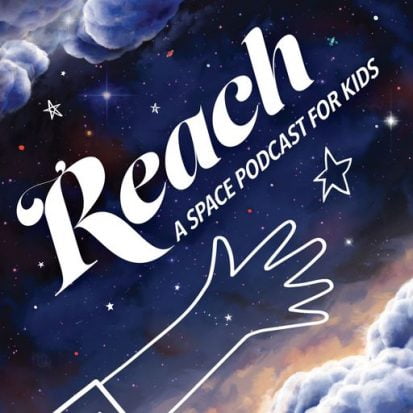
Training for Space! with Teresa Sindelar, Kylee Evans and Sandy Jobin-Bevans
Leave a reviewHow do you prepare for space travel? Have you ever thought about what happens if you have an emergency in space? Today’s guest, Teresa Sindelar, Medical Operations Crew Training Instructor at NASA’s Johnson Space Center. helps astronauts train for just that. Then special contributor Joalda Morancy has some thoughts on space settlements. And we receive a visit from the Gemini Twins on an all new “Did You Know…?” – all on this episode of REACH.
© Nate DuFort | 00:27:27
|Episode: 29 |
Full episode description
 Episode One: Introducing REACH: A Space Podcast for Kids
Episode One: Introducing REACH: A Space Podcast for Kids
This is an Episodic show. You can listen to it in any order, but episode one is always a great place to start.Full Episode description
How do you prepare for space travel? Have you ever thought about what happens if you have an emergency in space? Today’s guest, Teresa Sindelar, Medical Operations Crew Training Instructor at NASA’s Johnson Space Center. helps astronauts train for just that. Then special contributor Joalda Morancy has some thoughts on space settlements. And we receive a visit from the Gemini Twins on an all new “Did You Know…?” – all on this episode of REACH.
Hosts: Brian Holden and Meredith Stepien
Written by: Sandy Marshall with Nate DuFort, Meredith Stepien, Brian Holden and Joalda Morancy.
Special Contributor: Joalda Morancy
Co-Created, Produced by: Nate DuFort and Sandy Marshall
Edited by: Nate DuFort
Music composed by: Jesse Case
Logo by: Steven Lyons
Special thanks to Teresa Sindelar, Medical Operations Crew Training Instructor at NASA’s Johnson Space Center.
The Gemini Twins were voiced by the amazing Kylee Evans and Sandy Jobin-Bevans, who co-host the television game show Just Like Mom and Dad. You know Kylee as Stephanie Borden on the Hallmark series Good Witch, and Sandy stars in the upcoming sitcom The Parker Andersons. Follow Kylee on Instagram at @KyleeEvansHere, and follow Sandy on Instagram at @SandyJBevans.
Special thanks to Mimi Meredith, Michele McCartney, Chuck McClary and JoAnna Strecker at the Cosmosphere International Science Center and Space Museum for sharing the Astronaut Training Neutral Buoyancy Activity at the Cosmosphere Camps. To learn more about Cosmosphere Camps, visit https://cosmo.org and @kscosmosphere.
Thanks to our friends at NASA Space Place, and Kay Ferrari from NASA’s Jet Propulsion Laboratory.
All about NASA Astronaut Training
https://www.youtube.com/watch?v=WvT3hMVrSzs
All about NASA Careers
All about NASA Medical and Clinical
https://www.nasa.gov/content/medical-and-clinical
Neutral Buoyancy Activity
via Cosmosphere Camps
@kscosmosphere
Background: In order to train for doing spacewalks in microgravity environments, astronauts conduct simulated spacewalks in the Neutral Buoyancy Lab (NBL) in Houston. The NBL is a giant pool which contains a model of the International Space Station. Astronauts put on spacesuits and the correct amount of weight to make them float in one spot without moving up or down. This simulates the microgravity environment on the International Space Station. In the Cosmosphere Camp, Mission: Astro Lab, students receive SCUBA training and conduct microgravity missions much like an astronaut.
In this activity, students will make their own neutral buoyancy device, essentially like a submarine’s ballast tank. These are large tanks inside the sub that are filled with some water and some air. If they want to make the sub float, they let water out of the tanks. If they want it to sink, they put water in the tanks.
Supplies
- Plastic water bottle
- Push pin
- Pennies
- Duct tape
- About 14 inches of flexible plastic tubing
Instructions
- Use a push pin to poke three holes in the middle of one side of the bottle. Then use the pin to make the holes larger.
- Put about 2 inches of plastic tube into the bottle, then use duct tape to seal it into the mouthpiece.
- Your ballast tank is almost done, but it needs some weight to make it sink when you take the air out. You can use duct tape to attach pennies to the side of the bottle. Experiment with the best place on the bottle to attach the pennies. For instance, does it work better if the pennies are on the same side as the holes? The opposite side? Both sides? How many pennies do you need? Should they all be in the same spot?
Now, when you put the bottle into the water with the holes down, water will go inside the bottle, making it sink. When you blow air into the bottle, water will leave, making it float.
© Nate DuFortbop| Status: Active, 61 episodes | Kind: Episodic | Episode URL
The content, Artwork and advertising within this podcast is not owned or affiliated with Sound Carrot and remain the property of their respective owners.
